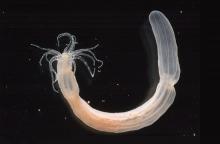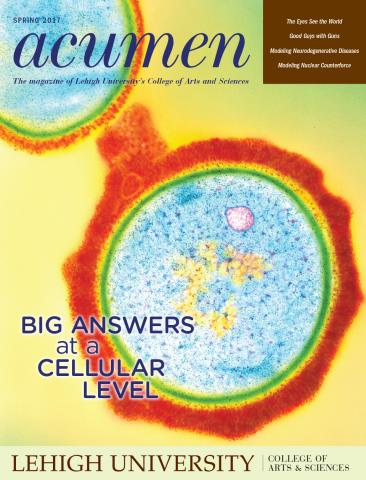
Effective therapies for the treatment of cancer rely on the localized delivery of drugs. Targeted drugs attack the cancer while reducing the impact the drugs have on the rest of the body. A unique delivery peptide that can selectively target tumors in mice and translocate and release cargo molecules intracellularly based solely on the acid levels inherent to cancer cells is being investigated in the laboratory of Damien Thévenin.
Funded by the National Cancer Institute, Thévenin’s team investigates the efficacy of a pH-sensitive peptide to target and deliver the microtubule inhibitor monomethyl auristatin E (MMAE) to cancer cells and breast tumors. Many cancer targeting therapies intended to improve the effectiveness and diminishing off-target cytotoxic effects have been developed and hold the promise of being therapeutic options for certain types of cancers. However, preclinical and clinical studies found that therapy strategies based on the targeting of specific proteins is significantly hampered by tumor heterogeneity, which can promote tumor evolution, leading to the loss of cell surface proteins and, eventually, to therapy resistance and disease progression. Moreover, targeted cancer biomarkers tend to be overexpressed in a tumor-associated, not tumor-specific manner.
Acidity is a general hallmark of tumors. While normal tissue pH is about 7.4, pH in tumors range from 5.5 to 7. Thévenin’s lab uses the pH (low) insertion peptide (pHLIP), a peptide that can selectively target tumors in mice solely based on their acidity rather than on any specific biomarker. pHLIP circulates in the blood supply until it anchors to the cell membrane of acidic tissues. Headed by graduate student Kelly Burns, their recent study has shown that pHLIP–MMAE combinations is very effective at killing a breast cancer cell line that is resistant to current targeted therapies in a concentration- and pH-dependent manner after only two hours of incubation without any apparent disruption of the plasma membrane.
Thévenin, assistant professor of chemistry, is collaborating with Matthew Robinson at Fox Chase Cancer Center. Using mice bred with a reduced immune system as a model, Fox Chase researchers insert breast cancer cells into the animals. After several weeks, a tumor develops and once it reaches 5 millimeters in size, the pHLIP-MMAE conjugate is injected intravenously. The study shows, for the first time, that pHLIP can effectively home the clinically relevant MMAE to tumor in animals.
These peptides can be used to target other types of cancers or conditions, says Thévenin. “We know that we can target metastases and viral infection in the lung, or even arthritis in the knee. Unlike other strategies that are developed to target few specific types of cancer, our approach is extremely simple and relies on a feature that is common to most solid tumors.”
“Right now, we are now trying to find a lead compound that we could move to preclinical trials. Since the publication of the pHLIP-MMAE study, we have found a pHLIP-drug combination 100-fold more effective than pHLIP-MMAE. We are extremely happy with these results but we want to do better.”

































